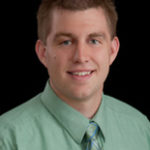By Benjamin Kachelman, OD

Oct. 28, 2020
The pandemic, with the accompanying lockdowns of the spring, has been trying. One of the bright spots was the added time for continuing education, and the many great programs available online. Here are three courses that helped me in my doctoring and my ability to contribute to the growth of the practice where I work.
“Off the Menu: A Nutritional Approach to Dry Eye”
Hosted by SECO University, and featuring Melissa Barnett, OD, as presenter, this course changed my thinking about dry eye.
The day after listening to this CE course, one of my long-time dry eye patients came in for a visit. We had tried everything to give her relief (tears, ointments, punctal plugs and Restasis, among other treatments), but never had we tried approaching the problem from a nutritional aspect. I asked her to try the dietary supplement, HydroEye, for 2-4 weeks, and then to see if it gave her any relief. I was curious to hear the results when she arrived back a month later. She was ecstatic to tell me that she had stopped all of the treatment we had been doing because this worked so well for her. Upon the third week of taking the vitamins, she experienced such great relief that she began purchasing this product to send by mail to her friends in other parts of the country, who were also suffering from dry eye. Listening to this course, and having it followed by this patient care experience, changed the way I think about and approach dry eye treatment.
Accessing the course: This particular course was $20 and offered one hour of CE credit. Click HERE to access it.
“Pinnacles of Awareness in AMD”
Written by Joseph J. Pizzimenti, OD, FAAO, this course provided an opportunity to reflect on how we diagnose and treat AMD, including where we can improve to better help patients and grow our practices.
When we think about our AMD patients, we diagnose and monitor them on a regular basis in our offices. Our natural routines and tendencies in diagnosis and treatment can become repetitive and habitual. With the evolution of technology in eyecare, and everything that can be “shiny” and “new” in treatment options, it is a good idea to revisit the fundamentals of what exactly is AMD and how those treatment basics work.
Accessing the course: This was a free course offering two hours of COPE credit. Click HERE to access it.
“How Environment and Genetics Give Rise to Myopia”
Written by Erin Tomiyama, OD and Kathryn Richdale, OD, PhD, this was a great course offered by Review of Myopia Management. It did a great job of further illuminating an aspect of myopia development that many ODs, myself included, had not previously thought enough about. Not a single day passes that I don’t find myself reading an e-mail or a news brief on the topic of myopia control, yet much of the information presented in this course was new to me.
Other Articles to Explore
As the myopia epidemic continues to increase and grow, it becomes increasingly important to be able to discuss with patients, and especially parents of younger children who may be facing myopia, the consequences of leaving myopia untreated. Parents also want to know, given the serious consequences of myopia, whether there are ways to make their children less likely to develop it. Thanks to this course, I now have an answer to the question: “Is my child more nearsighted because of the time they spend on their electronics, or video games or phone?”
With four sons, I plan to use the knowledge gleaned from this article, not just as a doctor, but as a father: 10 hours of outdoor time per week can significantly decrease the chances of a child, who does not yet have myopia, from becoming myopic. My own children will be receiving instructions each day to ensure they are playing outside. The nature versus nurture debate will not go away soon, and using this course is a great aid in having a basis for discussion with patients and their families.
Accessing the course: This course had a $35 fee, and offered two hours of COPE credit. Click HERE to access it.
 Benjamin Kachelman, OD, practices at Florence Eye Center in Florence, Ala. To contact him: drkachelman@florenceeyecenter.com
Benjamin Kachelman, OD, practices at Florence Eye Center in Florence, Ala. To contact him: drkachelman@florenceeyecenter.com

























